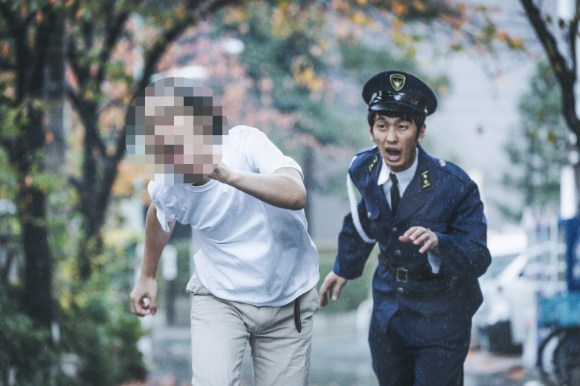
New tool allows Kyoto police to be at the scene of the crime before the crime even occurs.
Two months ago, in Kyoto City, a patrolman was walking along the street when he noticed a motorcycle drive away as if to avoid him. Finding that odd, the officer jotted down the bike’s license plate number. Shortly after, a string of purse snatchings by a man on a motorbike took place. During the investigation, that written-down license number led to a 20-year-old suspect who admitted to the crimes.
A month before that, another officer walked in on a would-be motorcycle thief right when he was in the middle of jacking a bike.
These aren’t just incidents of random luck, however. Those cops knew just where to be and what to look out for thanks to a new system adopted by the Kyoto Prefectural police and used by local law enforcement throughout the prefecture.
It’s called the Predictive Crime Defense System (Yosokugata Hanzai Bogyo System), a computer system that can tell police when and where certain types of crime are most likely to be committed. For example, if an officer is looking to bust some pickpockets, they simply type the crime and the time of day into the system and a map of the area will feature color-coded sectors.
The darker the area, the higher the risk of that crime occurring is present. Think of it like the gang-war map used in Grand Theft Auto: San Andreas, only with the purpose of stopping crimes rather than committing war in the streets to protect Grove Street turf.
This system allows police to efficiently dispatch patrols to the highest risk areas and hopefully prevent crimes from occurring at all. Since implementing the system, Kyoto police have cruised areas with a high chance of sexual assault in patrol cars with their flashing lights on. Also, in areas where the system reveals a car robbery is likely to happen, police are extra vigilant in checking cars for suspicious damage or activity.
Since the primary goal of the system is prevention, it will be some time before results can be seen. However, Kyoto had gotten the idea from a project in Santa Cruz, California, which has used a similar system for years and has reported a 20-percent reduction in crime.
There is no magic to this predictive system, however, as it just analyses tens of thousands of past crime reports and calculates when and where certain types of crime tend to happen. Still, this hasn’t stopped netizens from debating which dystopian sci-fi classic the Predictive Crime Defense System most closely resembles.
“Isn’t this the future that Psycho-Pass warned us about?”
“When I hear ‘predict future crime’ it’s hard not to think about Minority Report.”
“Finally, Psycho-Pass is beginning in Japan… Crime prediction from big data!!”
“Sure the whole thing is like sci-fi, but why Kyoto?”
“Wow, forget the system. We have to harness Philip K. Dick’s predictive ability.”
“Pfft, this is hardly Minority Report…but it’s a little close to Person of Interest.”
True, this isn’t so much a time-bending psychic power as it is regular statistical analysis, but it does trigger some of the same ethical concerns that these works of fiction bring up.
Earlier this month, in Fukuoka Prefecture, a man was arrested for carrying a flashlight… That’s it. The incident sparked a renewed interest in a law that allows police to arrest people simply for carrying something that could conceivably be used in a crime (crowbar, striped shirt, sack with a big dollar sign, etc.).
Although not connected to the Predictive Crime Defense System, it does illustrate the considerable leeway police get when making arrests. If fueled by a sense that a crime is about to occur, it doesn’t take a fancy computer system to predict a spike in false arrests may occur, even if they are well-intentioned false arrests.
Hopefully these concerns are being addressed by law enforcement, especially since the Predictive Crime Defense System is expected to go nationwide soon. Failing that, they can probably get one of those hairless precogs chained up in a pool for better results.
They can’t have mine though! I keep him locked up in my washing machine to tell me whether to take my umbrella or not when I go out. I hate having to schlep one of those things all over town if I don’t need it.
Source: NHK News, Hachima Kiko, J-Cast News
Top image: Pakutaso